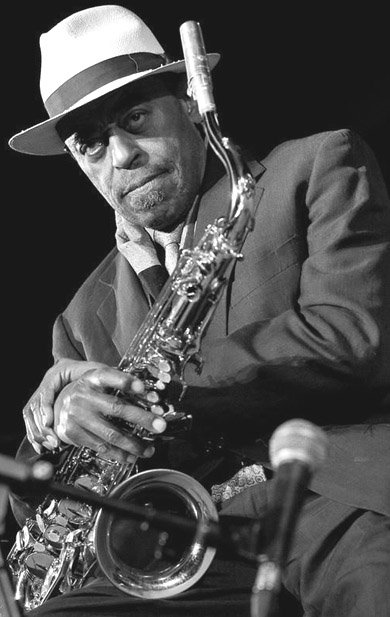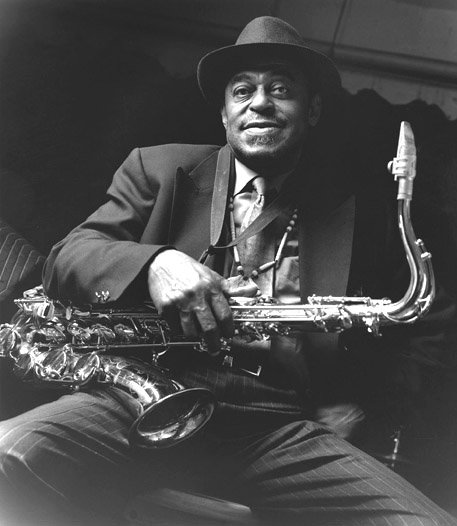Marion Brown (alto sax), Archie Shepp (tenor sax), Ted Curson (trumpet), Joseph Orange (trombone), Reggie Johnson (bass) and Joe Chamber (drums). From the album Fire Music (1965).
In 1965, Shepp published Fire Music, where you can see the beginning of his political awakening and whose title comes from an African ceremonial musical tradition. In the mid-1960s he formed groups with Beaver Harris, Roswell Rudd, Grachan Moncur III and Bobby Hutcherson. In 1967 he recorded The Magic of Ju-Ju, which included a small African percussion ensemble. At that time, many African American jazz musicians were attracted to African musical and cultural traditions, and Shepp was at the forefront of this movement along with Pharoah Sanders. At the same time he wrote essays linking free jazz with black militancy, read his own poetry and quotes from James Baldwin and Malcom X in his recordings and composed theater plays.

But in the 1970s the fire and fury of his principles disappeared and he began to interpret a kind of rhythm and blues based on swing, and in the 1980s, blues, ballads, spirituals and bebop. From 1968 to 1972 he taught at the State University of New York in Buffalo and from 1972 to 2002 at the University of Massachusetts in Amherst. During the 1980s he also made numerous tours for Europe and recorded with Niels-Henning Ørsted Pedersen, Horace Parlan and Jasper van't Hof. In 1981 he appeared in the Canadian documentary Imagine the Sound about free jazz together with other figures belonging to this style. In 1984 he also appeared in the French documentary on Sun Ra Mystery, Mr. Ra. Sheep continues touring and recording to the present day.

This theme is very long and has several parts. At first it’s nice and innocent, but then it increases its intensity. There is a break and then it becomes unpredictable and abstract. Then it changes at a faster rate, but returns to its previous experimental nature. After that Chambers intervenes and later provides a regular rhythm in which the musicians play more fluently, but it doesn't last long because sudden changes in both rhythm and melody quickly occurs. At last, Curson starts playing broken phrases, the rest of the rhythm section makes a riff and Curson follows, but now his melodic line is more continuous. The riff sounds again, after a while the group plays a small arrangement and Curson takes the mute, lowers the speed and ends his solo. There is another silence and the group comes back at a slow rhythm playing freely. Next Brown enters interpreting a short passage and the group returns, but this time with more force and speed to give way to Shepp with his characteristic free jazz improvisation while the riff sounds again several times throughout his solo. Shepp squeezes the saxophone in a heartbreaking manner until the group briefly comes back and ends abruptly.

Congratulations @fjcalduch! You have completed the following achievement on the Steem blockchain and have been rewarded with new badge(s) :
You can view your badges on your Steem Board and compare to others on the Steem Ranking
If you no longer want to receive notifications, reply to this comment with the word
STOPTo support your work, I also upvoted your post!
Vote for @Steemitboard as a witness to get one more award and increased upvotes!
Downvoting a post can decrease pending rewards and make it less visible. Common reasons:
Submit